I once was swimming in the middle of the deep end of a pool. As I rose to the surface after a dive, I took a breath and began to choke. It is a quirk of my anatomy that it happens with little reason. I remember thinking – “I can’t breathe” as I gasped for air. But instead of panicking I forced myself to control my coughing and swam to the side where, grabbing the ladder, I proceeded to gasp, cough and choke until it passed. Panic never helps. If I had panicked, I would have drowned.
As the weeks wear on and we deal with a constantly changing COVID 19 landscape it is hard not to allow our panic to take over. The human brain is designed not to keep us happy or mentally well, but to keep us alive. At times of stress the limbic brain- you know the part that creates that “freeze, flee or fight” response – wants to hijack our “smart logical brain” and make us go hide in the corner. But as someone who has weathered many storms in business and in life, I can honestly say panic and fear are a waste of resources. Now is the time to think SMART.
Veterinary practices across the country are varying their responses and reactions to this pandemic. Some are business as usual while others are closing to the public. What should be happening?
Since I have access to some of the brightest minds in veterinary management, I thought it would be helpful to share what I have learned.
1. Practices are keeping their teams safe.
Hospitals have been COMMUNICATING with their clients by push notifications. Clinics are preparing clients by using their website and adding a COVID 19 protocol page so clients can read about the precautions being taken to diminish risk before they call or drive over. Clients who are blindsided will get frustrated. Clients that are informed will be fine. They are using communication tools like #VitusVet to email or text their clients what to expect. They are duplicating the messages on their social media pages to create alerts and banners to inform clients of the changes and setting up large whiteboard signs which can be seen better than paper notices near their doors. Consider BOOSTING your Facebook notification so more of your clients will get the message. It is cheap and worth it.
2. Practices are assuring pet owners that their pets are not a danger to them.
Idexx has the capability to run COVID 19 tests on animals and in their trials have tested hundreds of dogs finding no evidence of the illness. The AVMA has posted that companion animals are not considered a vector. The one dog from China that tested “low positive” was finally returned to its owner where at the age of 17 it passed away from age related illnesses.
3. Practices are dividing their teams.
Practices with multiple staff members are considering the risk that if one team member tested positive, then all team members would have to be quarantined and the practice would have to shutter the doors. Wisely, they are creating alternating teams who work opposite days with time between team shifts to completely clean and sanitize all surfaces. This way they cut the risk exposure to 50% and can keep caring for pets.
4. Practices are bringing on technology.
I have communicated with all my clients instructing them to bring in telemedicine or telehealth depending on their state’s practice act. (yes, they are all different). Teams are using two-way texting with clients who can alert the staff of their arrival so food or medications can be delivered to the car. Payment is being processed over the phone. Technicians are taking medical history over the phone and Facetime, Skype or Zoom are being used for exam discussions. You can even get creative and build your own patchwork telemedicine platform. For lots of good ideas you can join Dr. Jessica Vogelsang’s Veterinary Telemedicine Facebook group. Most tech providers are working overtime to get hospitals setup and running in a few days.
5. Tech companies are stepping up to help.
#VitusVet is offering free texting for the next two months, #VETNow is offering free months and so are others like #BabelBark. Veterinarians are often slow to change but practices without electronic medical records and technology tools to outreach to clients will suffer more in this pandemic than those who are forward thinkers.
6. Tech companies are stepping up to help.
This seems crazy but in all my interactions it seems clients who are not under lockdown are finding this time out of the office as an opportunity to get their pets up to date on care. My advice – stockpile this extra income because in the months to come you may need the backup. With many non-essential businesses having to lay off staff it is inevitable that financial limitations will be manifested in our practices. Be prepared. My clients are advised to keep several months of reserve operating capital and to have business interruption insurance.
7. Practices are PLANNING.
Set up tools now before you need them. Consider payment options like CareCredit, ScratchPay, VetBilling or PaymentBanc because your clients are going to need some help. #VitusVet has just rolled out #VitusPay which allows clients to split their veterinary bill over several months on their credit card while paying you upfront. The need for this has always been there but it is going to grow…set it up NOW. Join “The Veterinary Care Foundation” so you can set up a tax deductible charitable fund to be used for clients who need help. You will always have clients with money who are generous and want to help pets. Give them an avenue.
8. Practices are encouraging online delivery.
We often struggle to promote our Home Delivery Pharmacy, and fight with Chewy, but we are in a prime time for promoting this tool to our clients. Hill’s to Home has also rolled out so we have great options to help our clients get the medications and food they need without risk of exposing them or us to COVID 19. Offer these options in all your social media alerts and push notifications.
8. Practices will survive!
After 35 years in veterinary medicine I have been through multiple economic downturns and natural disasters. People will always care for their pets – as best they can. This will be a different scenario but in the long run people who love their pets will do what they must to care for them. Banks love loaning money to veterinary businesses. Why? Because they have a 99% success rate as opposed to a new start up restaurant which has a 40% success rate. Veterinary medicine will survive and honestly, we may come out better, more prepared and more responsive to the needs of our clients by being forced to adapt to distance communication and care.
One final note: You are going to be grumpy and out of kilter! I devote a lot of research to studying brain science and how humans think. Our brain is an energy hog. It uses about 20% of all the energy we produce to do its thing. To conserve this precious resource (remember our brain evolved when there was no fast food on every corner) it creates neuropathways. You may recognize them as HABITS. When we drive to work and arrive not remembering how we got there we have experienced a neuropathway. At work we have done the same. We can autopilot our way through much of our routine. Now our routine is changing – a lot! So, our brain will want to default to the normal path even though you are telling it to do something a new way. This HURTS OUR HEAD! 😊 Be aware that nerves will fray, tempers will be short, work will be harder all because you are forced to adapt your habits. Please share this information with those around you because when we are aware of how our brain is intentionally sabotaging our efforts we can forgive and be more emotionally intelligent and create harmony at work and home.
I wish you all health and success and pray for a short duration to this crisis.
If I can be of service, please reach out.
 by a veterinarian
by a veterinarian


